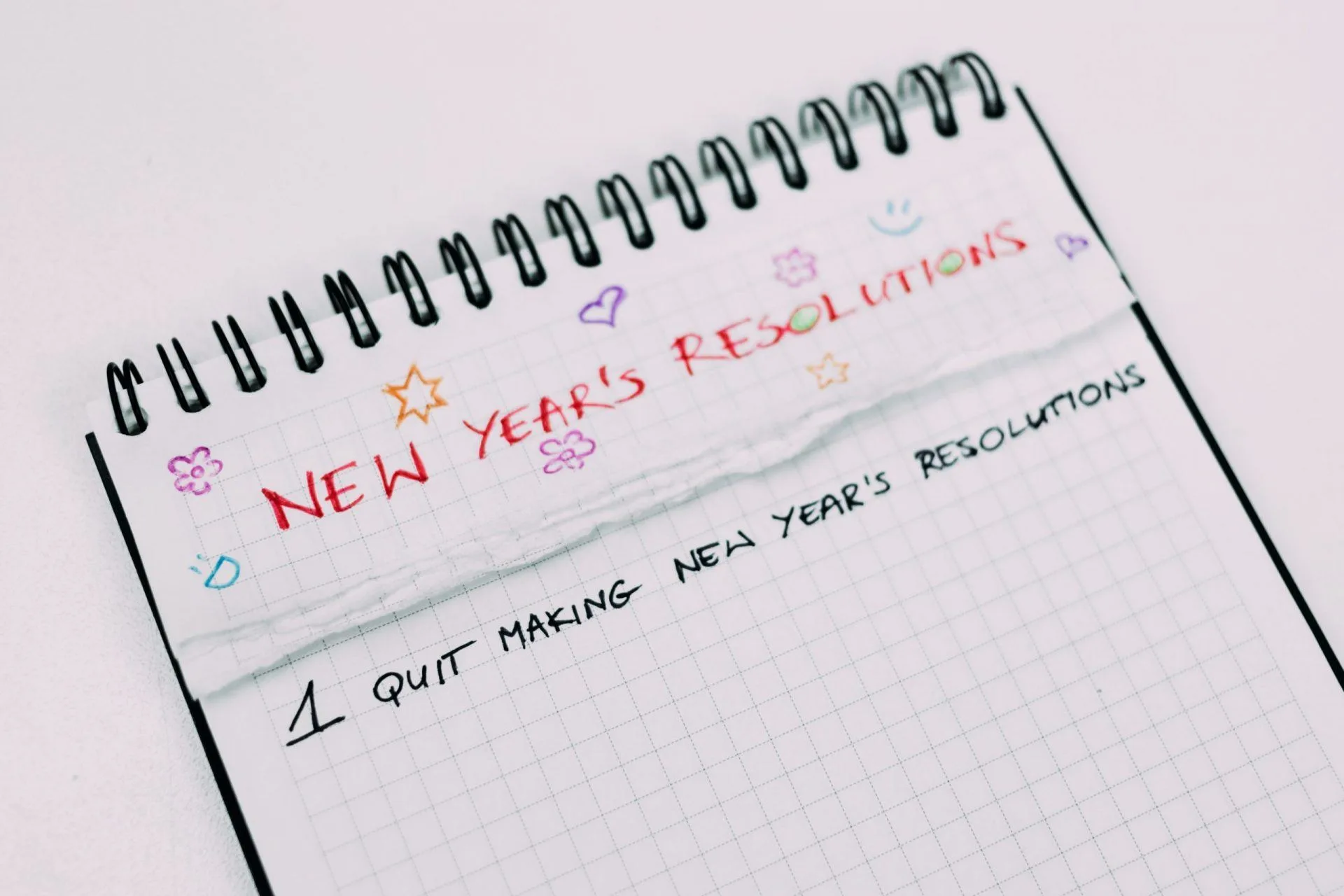We’ve all been there, it’s finally the new year, and with the start of a whole new year often comes a long list of resolutions. New Year’s resolutions are really nothing new and, ask anyone, and they’ll no doubt admit to making and breaking New Year’s resolutions. But, why do we have this tendency towards breaking our promises to ourselves? And, perhaps more importantly, how can we change things? Is setting goals somehow better than making resolutions?
New Year’s resolutions don’t work
 It’s a well-known fact that making New Year’s resolutions doesn’t really work for most of us. However, you might be surprised to know just how tragically most of us tend to fare when it comes to keeping New Year’s resolutions.
It’s a well-known fact that making New Year’s resolutions doesn’t really work for most of us. However, you might be surprised to know just how tragically most of us tend to fare when it comes to keeping New Year’s resolutions.
According to Forbes, a massive 80% of the resolutions we make fail by the beginning of February. But the reason behind this is an important insight into why setting goals might work better. Most of us tend to set resolutions that are lofty, non-specific and usually, they also have no action plan.
We also tend to be affected by the people around us and what they aim to achieve during the New Year. Whilst going to the gym on a daily basis might be what your friend wants to do, it might not be what you want (or even need) to do. But why do we set these resolutions yearly on what is essentially just an arbitrary date? Where does all this resolution-making come from? You might not be surprised to hear that, like many of the things we do around the holidays, it is largely based on some very old traditions.
According to the Times-Tribune, making New Year’s resolutions has been around for over 4000 years. It stems from the ancient Babylonians making promises to the gods they worshiped. The Romans also made sacrifices to Janus, the God of new beginnings and transitions, before the new year began. Janus of course is the God after which January is named.
What makes goal setting different?
The issue with resolutions is that they have no actionable game plan. We tend to be very vague when we make New Year’s resolutions. The two most popular ones are exercising more or eating more healthily. But neither of these means anything at all. What does healthy eating mean to you, and how are you planning to exercise more?
If you opt instead to set goals with actionable steps to start the year off, you are much less likely to fail because you have a barometer by which to measure your progress. For instance, one of my goals for the year is to consistently go to the gym twice a week. Because I know what I want to achieve, I can already set myself up for success by choosing the days and times that are best suited to my life.

Photo by RODNAE Productions from Pexels
How to set goals that you’ll actually achieve
Of course, setting a goal that is actionable but not attainable will, unfortunately, leave you with the same result as resolutions. Ideally, you want your goals to be both attainable and meaningful. If you start off with more vague resolutions and use them as a starting point for your goals, you’ll likely find success.
It’s also vital that, when setting goals, you have a realistic look at your life and what you want to change as well as where those changes can be made. If you know that you can only dedicate two hours twice a week to exercise, you can begin to make better choices about how you will exercise and what fits into your life.
Instead, your goals should be SMART (specific, measurable, achievable, relevant, and time-bound). Yes, it is an acronym that is often associated with management and marketing, but trust me, it’s relevant here too. You want to be absolutely clear about what it is you want to achieve. If, for instance, it’s losing weight, you need to know exactly how much weight you want to lose and by what date you want to have lost that weight.
You need to make sure that your target isn’t completely out of reach and is thus achievable. Your goals should also always be yours. It’s vital to make sure that you aren’t simply bowing to societal pressure. You need to want to achieve the goal you’re setting.
Don’t put too much pressure on yourself

New Year’s Resolution
One of the most important things I have learned when it comes to goal setting is that the less outlandish and unrealistic the goals, the more chance you have of meeting even exceeding the goals you’ve set. It’s also essential to remember that, no matter how dedicated we are to achieving our goals, change is hard, and sometimes, you’ll fail to stick to even the best-laid plan.
Just because you miss one day of the gym or can’t take the dog for a walk today because you are injured, ill, or even just ran out of time, doesn’t mean that you shouldn’t try again tomorrow.
Don’t fall off the wagon completely just because of one slip up. As humans, it’s natural for us to make mistakes. As long as you learn from them and adjust so that your goal doesn’t fail, you’ll likely be fine. It’s about getting back up and getting back to the gym on Friday, even if you missed Monday’s session, that’s important.
References
https://www.almanac.com/content/how-did-months-get-their-names
https://www.nytimes.com/guides/smarterliving/resolution-ideas



![women [longevity live]](https://longevitylive.com/wp-content/uploads/2020/01/photo-of-women-walking-down-the-street-1116984-100x100.jpg)










